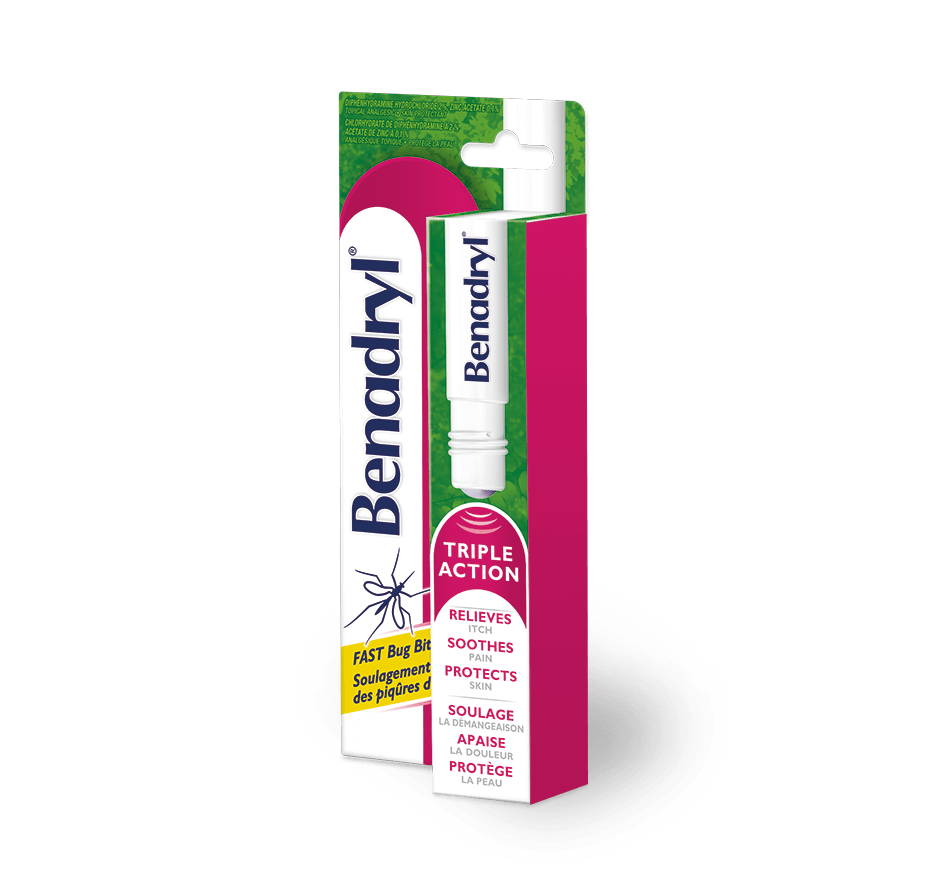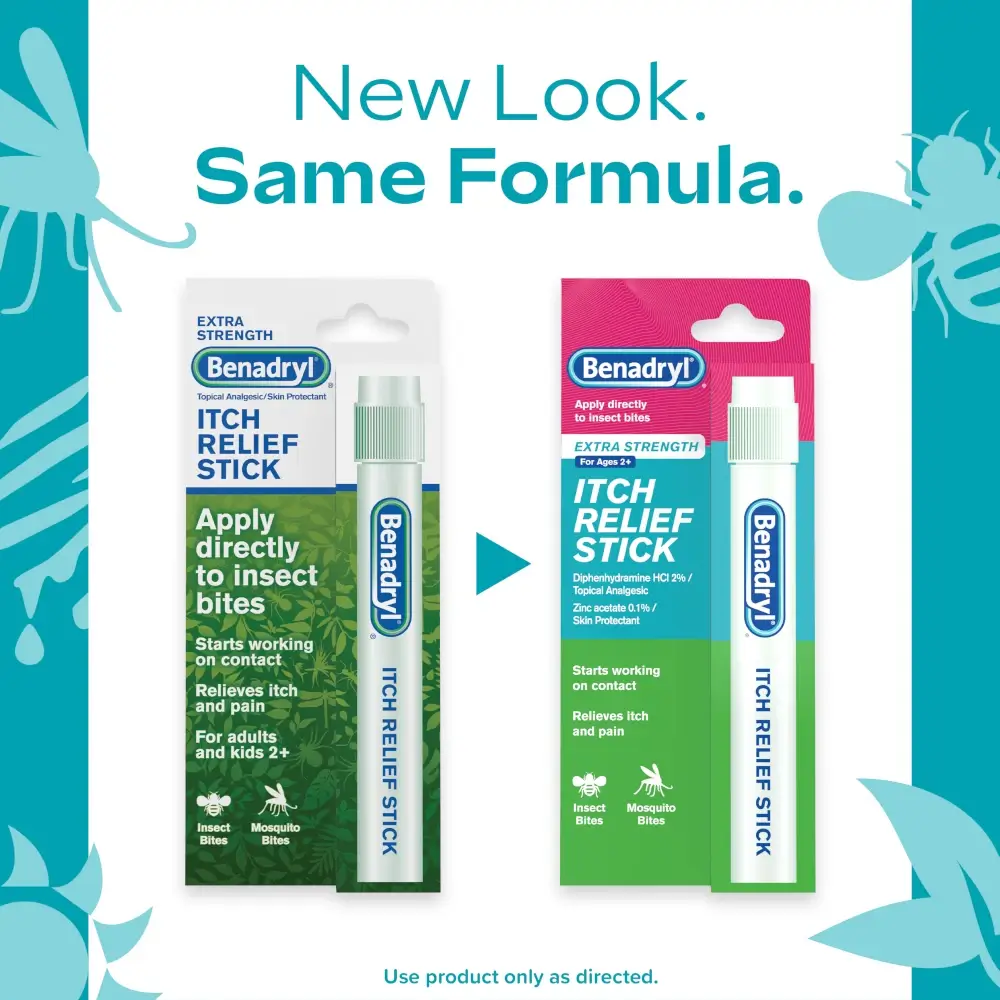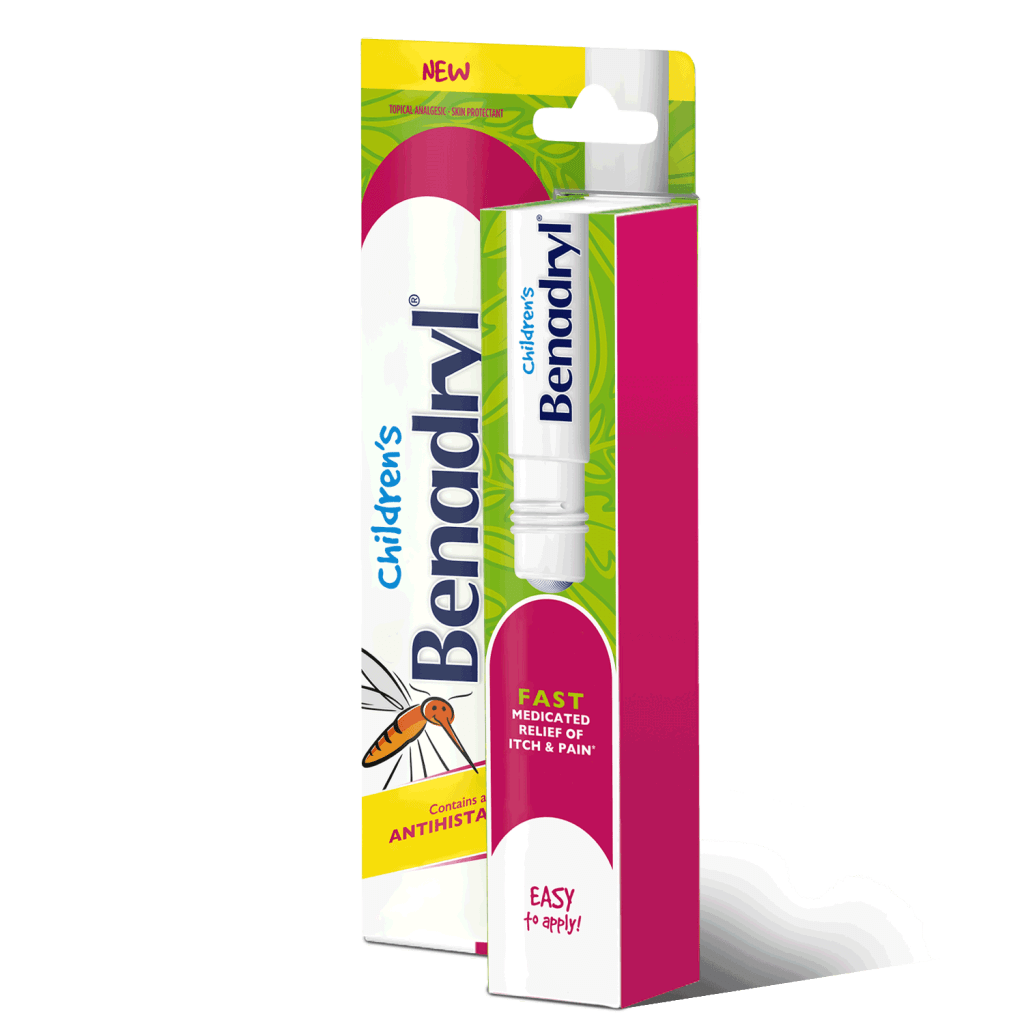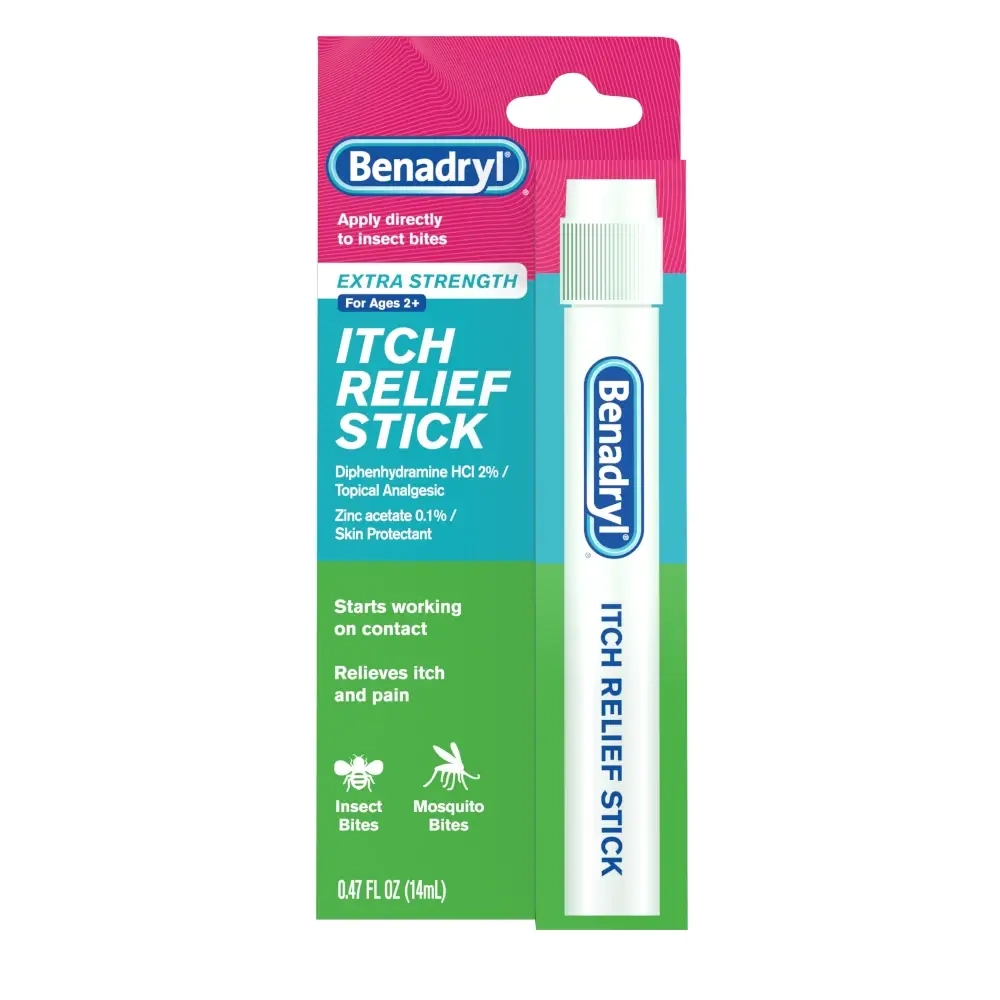Benadryl can help alleviate the itching and swelling associated with ant bites. It is an antihistamine that reduces allergic reactions in the body.
Ant bites often lead to discomfort and itching that can disrupt your day-to-day activities. Taking Benadryl, known generically as diphenhydramine, can offer relief by blocking the effects of histamine, a substance in the body that contributes to inflammation and itch response.
With a recommended dosage, it can soothe the irritation and help manage the symptoms resulting from ant bites. Keep in mind that while Benadryl is effective for mild reactions, severe allergic responses to bites require immediate medical attention. It’s always wise to consult a healthcare professional for proper guidance, especially if you have underlying conditions or are taking other medications. Remembering to use repellents and wearing protective clothing can also help prevent bites from occurring in the first place.
The Ant Bite Experience
Ant bites are common yet unexpected occurrences that can interrupt a peaceful day outdoors. Sudden sharp pain signals a warning. It’s a signal from one of nature’s smallest critters. The moment after an ant bite can be very unpleasant. Benadryl, or diphenhydramine, might be a helpful ally to ease the discomfort.
Initial Reaction To Bites
A typical first response includes a sharp sting followed by redness. The bite area may swell. Children may cry out or feel scared. Adults might feel a range of emotions from irritation to concern.
Common Symptoms
Ant bites show up as small red lesions on the skin. Here are symptoms one might notice:
- Pain at the bite location
- Swelling or bumps
- Redness or skin discoloration
- Warmth around the bite area
- Itching (often intense)

Credit: www.benadryl.ca
Benadryl’s Action On Allergies
Have you ever wondered if Benadryl can soothe ant bites? Ant bites cause itchiness and swelling. This is due to the body’s allergic reaction. Benadryl, known for its antihistamine properties, might be the relief you seek.
Active Ingredients In Benadryl
Benadryl contains diphenhydramine. This ingredient is key to fighting allergies. Let’s look closer at how it provides relief from ant bites:
- Reduces itching: Soothes skin quickly.
- Decreases swelling: Minimizes irritation from bites.
- Calms allergic reactions: Helps your body to settle down.
How Antihistamines Work
Antihistamines, like Benadryl, are magic for allergies. Here’s how they work:
- Block histamines: These chemicals cause itching and swelling.
- Provide relief: You feel better as histamines get blocked.
Remember: Always use medicines as directed. Consult a doctor for kids or if you are unsure.
Assessing Benadryl’s Suitability
An itchy, swollen ant bite can be quite a nuisance, but there’s a familiar remedy that may offer relief. Before reaching for a bottle, it’s key to assess if Benadryl is the right choice. This antihistamine is known for tackling allergic reactions, but will it help with ant bites?
When To Use Benadryl For Bites
Benadryl (Diphenhydramine) might be a go-to for ant bite discomfort. Consider its use in these scenarios:
- Intense itching: Apply cream or take orally for relief.
- Mild swelling: Helps reduce bite-induced puffiness.
- Allergic reactions: Counter mild allergic responses effectively.
Cautions And Considerations
It’s crucial to use Benadryl carefully. Here’s what to keep in mind:
| Caution | Detail |
|---|---|
| Drowsiness: | Benadryl can cause sleepiness. Avoid driving or operating heavy machinery after taking it. |
| Dosage: | Don’t exceed recommended amounts. Overuse can be harmful. |
| Children: | Exercise caution. Consult a pediatrician before administration to kids. |
| Interactions: | Check for potential conflicts with other medications. |
| Chronic Conditions: | People with certain health issues should avoid Benadryl. Seek medical advice if unsure. |
Alternative Remedies For Ant Bites
Wondering if there’s a way to soothe ant bites without reaching for Benadryl? Look no further! Many alternative remedies can provide relief. Natural ingredients and topical treatments can help reduce itchiness and discomfort. Some options can even reduce pain. Let’s dive into a few of these nature-inspired solutions and find relief from ant bites.
Natural Solutions
- Aloe Vera: Apply the gel directly to the bite for a cooling effect.
- Lemon Juice: Its acidity can neutralize the bite’s itch.
- Honey: Dab a little on the bite to ease irritation.
Topical Treatments
Topical options target the bite area. They soothe the skin and reduce redness. Here are some top picks:
- Calamine Lotion: Apply to the bite for instant relief.
- Baking Soda Paste: Mix with water and apply to the bite to draw out toxins.
- Tea Tree Oil: A natural antiseptic to keep bites clean.
Pain Relief Options
Pain from ant bites can linger. Try these pain relief strategies:
| Method | Description |
|---|---|
| Cold Compress | Apply ice wrapped in cloth to reduce swelling. |
| Oatmeal Bath | Soak in the bath to soothe itching and discomfort. |
| Mint Toothpaste | Apply a dot on the bite for a cooling sensation. |
Precautions When Using Benadryl
Ant bites are common. They cause itchiness and discomfort. Benadryl, an antihistamine, may offer relief. Still, understanding how to use it safely is crucial. Please consult a healthcare professional before taking Benadryl, especially for children. This section covers essential precautions.
Possible Side Effects
Benadryl can cause side effects in some people. Be aware of these signs:
- Drowsiness or sedation
- Dizziness
- Dry mouth, nose, or throat
- Difficulty urinating
- Upset stomach
Severe reactions are rare. Seek immediate help for difficulty breathing or swelling.
Interactions With Other Medications
Benadryl may react with other drugs. Provide your doctor with a complete list of your medicines, including:
| Medication Type | Examples |
|---|---|
| Sedatives or Sleep Aids | Zolpidem, Alprazolam |
| Muscle Relaxants | Cyclobenzaprine, Carisoprodol |
| Antidepressants | SSRIs, MAOIs |
Only use Benadryl as directed by a health expert. Avoid consuming alcohol. Combining these can increase drowsiness.

Credit: www.benadryl.com
Preventing Ant Bites
Going on an outdoor adventure or just spending time in your backyard can lead to unexpected encounters with ants. A small ant bite can be quite a nuisance. Knowing how to prevent ant bites is key to enjoying your time outdoors without any itchy interruptions.
Protective Measures
Stay safe from ants with these simple tips:
- Wear appropriate clothing. Long sleeves and pants can shield your skin.
- Use insect repellent. Products with DEET or lemon eucalyptus oil are effective.
- Keep food sealed. Ants are attracted to crumbs and sweets.
- Be aware of your surroundings. Avoid sitting or standing near ant hills.
Identifying High-risk Areas
Finding and avoiding places where ants live will help prevent bites:
| Area | Ant Activity Level |
|---|---|
| Wooden structures | High |
| Yard debris | Medium |
| Home foundations | Medium |
| Lawns | Low-Medium |
Keep an eye out for ant trails and nests in these areas. Control your movements to avoid disrupting their habitat.
When To Seek Medical Attention
Dealing with ant bites often involves home remedies, such as using Benadryl to reduce itching and swelling. Yet, certain cases require immediate medical attention. Knowing the signs of a severe reaction can be lifesaving. Below are essential pointers to identify when professional help is necessary.
Symptoms Of Severe Reactions
- Difficulty breathing: Tightness in the chest or throat indicates serious trouble.
- Swelling of face, lips, or tongue: This can be a sign of a systemic allergic reaction.
- Hives or rash: If they appear away from the bite site, the body may be responding systemically.
- Dizziness or fainting: Low blood pressure from an allergic reaction can cause these symptoms.
- Rapid heartbeat: A fast pulse is sometimes a reaction to an allergen.
If any of these are present, contact emergency services immediately.
Risk Of Anaphylaxis
Anaphylaxis is a rapid, severe allergic response that is a medical emergency. High-risk individuals should carry an epinephrine auto-injector. See the key points below:
| Signs of Anaphylaxis | Immediate Actions |
|---|---|
| Widespread hives, itching, or redness | Use epinephrine auto-injector |
| Swelling of the throat or mouth | Call emergency services |
| Difficulty swallowing or speaking | Lie down with feet elevated |
| Nausea, vomiting, or diarrhea | Prevent dehydration, stay calm |
| Sudden drop in blood pressure | Stay horizontal |
Remember, an anaphylactic reaction requires immediate treatment. If you suspect someone is experiencing anaphylaxis, do not hesitate to act.
Empowering Yourself With Knowledge
Suffering from an ant bite can be more than a minor annoyance. It can swell, itch, and cause discomfort. The right knowledge can transform your response to these bites from reactionary to proactive. Discover how to identify different ant species and effectively treat their bites.
Understanding Different Ant Species
Ants are not just small, they are diverse. Each species has unique characteristics. Some may cause a mere itch, whereas others provoke a stronger reaction. Recognize common types:
- Fire Ants: Reddish-brown, known for painful bites that turn into blisters.
- Carpenter Ants: Larger and black, their bites can pinch due to their strong jaws.
- Pavement Ants: Brownish-black, typically less aggressive with minor stings.
Identifying the ant that bit you can help determine the best course of action.
Learning First Aid For Bites
Quick and proper first aid is crucial to alleviate the symptoms of ant bites. Here are easy steps to follow:
- Wash the Area: Clean the bite with soap and water to prevent infection.
- Apply Cold Compress: This reduces swelling and soothes the pain.
- Consider Antihistamines: Products like Benadryl can relieve itching and swelling.
- Avoid Scratching: Scratching can lead to infection and prolong healing.
Having a first aid kit with the right supplies, such as antiseptic wipes and cold packs, ensures you’re prepared for any ant bite.
Will Benadryl Help Ant Bites? Yes, Benadryl, an antihistamine, can help alleviate itching and swelling. However, it’s essential to use it according to guidelines and seek medical attention for severe reactions.

Credit: www.benadryl.ca
Frequently Asked Questions For Will Benadryl Help Ant Bites
Can Benadryl Reduce Swelling From Ant Bites?
Yes, Benadryl can help reduce swelling associated with ant bites. It’s an antihistamine that alleviates itchiness and inflammation. However, consult a doctor if symptoms persist or worsen.
How Does Benadryl Work On Insect Stings?
Benadryl works by blocking the action of histamine, a substance in the body that causes allergic symptoms. Taking Benadryl shortly after an insect sting can mitigate allergic reactions like itching and swelling.
Is It Safe To Use Benadryl For Ant Bites?
Using Benadryl for ant bites is generally considered safe for most people. Always adhere to the recommended dosage and consider potential allergies to the medication itself.
How Quickly Does Benadryl Relieve Ant Bite Symptoms?
Benadryl can start relieving ant bite symptoms within an hour. Its effects peak in 2 to 5 hours. For faster relief, use a topical Benadryl cream directly on the bite.
Conclusion
To sum up, Benadryl can be an effective remedy for ant bites, offering relief from itching and swelling. Remember to use it as directed and consult a medical professional for severe reactions. Keep this antihistamine on hand to manage those unexpected stings and maintain comfort.

I’m MD Tanvir, and I bring years of expertise gained from working closely with pest control companies to the forefront. My journey in the industry has inspired me to launch Bug Battler, a platform aimed at equipping people with the know-how to combat pests autonomously. Through Bug Battler, I aim to empower individuals with practical insights to tackle pest infestations effectively.

